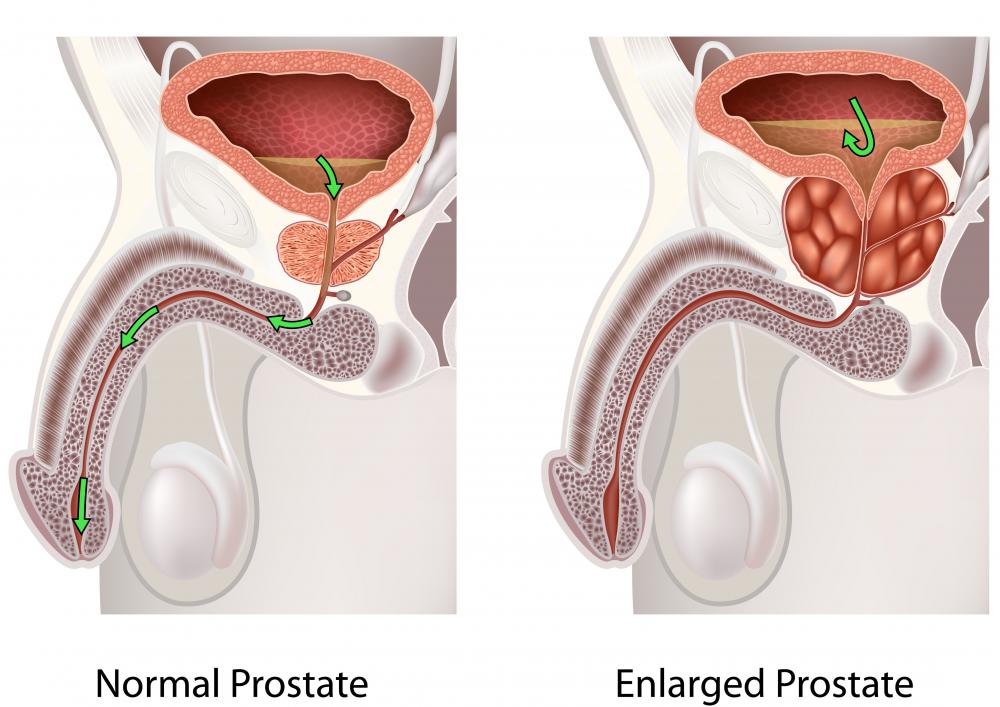At WiseGEEK, we're committed to delivering accurate, trustworthy information. Our expert-authored content is rigorously fact-checked and sourced from credible authorities. Discover how we uphold the highest standards in providing you with reliable knowledge.
What is Transurethral Resection of the Prostate?
Transurethral resection of the prostate, or TURP, is a surgical procedure for the treatment of benign prostatic hyperplasia. The procedure involves the removal of prostate tissue, with the prostate being accessed via the urethra. This is a relatively non-invasive procedure which produces a good outcome for up to 90% of patients.
Benign prostatic hyperplasia is enlargement of the prostate which is not caused by cancer. While this is a benign condition, it can cause negative side effects in many men, including frequent urination combined with difficulty urinating, and an increased need to urinate at night. Prostate enlargement can lead to kidney damage and bladder stones, making transurethral resection of the prostate an important procedure for men with the condition. The procedure can also provide symptomatic relief for men with prostate cancer.

Men undergoing transurethral resection of the prostate gland are advised by their doctor to avoiding eating or drinking for several hours prior to the procedure. Any medications being taken should be discussed with a doctor before the surgery to determine whether they are safe to take. Men who are taking certain medications, such as blood thinners, may be advised to stop taking these temporarily before the procedure can be carried out.

During a transurethral resection of the prostate the patient receives either a general or a spinal anesthetic. In the latter case he will remain conscious during the operation, but will not feel pain. During the procedure a surgeon inserts an instrument called a resectoscope into the urethra. The resectoscope is around twelve inches (30 cm) long and half an inch (1.25 cm) in diameter, and is fitted with a light source and an electrical or laser loop with which the surgeon removes excess prostate tissue. The procedure takes approximately sixty to ninety minutes.

While this is a non-invasive procedure, it can take several weeks to fully recover. After being released from hospital, men are advised to avoid driving for at least one week, as anesthetic can slow reflexes significantly. In addition, strenuous exercise should be avoided for several weeks. Most men will be able to resume sexual activity after four to six weeks assuming no serious complications or side effects arise.

Some men may experience side effects or complications following transurethral resection of the prostate. The procedure is generally considered safe, however, and most men will not experience serious side effects. Possible side effects include urinary tract infection, pain when urinating, and incontinence. Sexual dysfunction may also result, with possible erectile dysfunction or retrograde ejaculation. The latter condition is not painful or life-threatening, but may cause reduced sexual sensation. Retrograde ejaculation may also reduce fertility, as the condition involves the release of semen into the bladder during ejaculation.
AS FEATURED ON:
AS FEATURED ON:














Discuss this Article
Post your comments